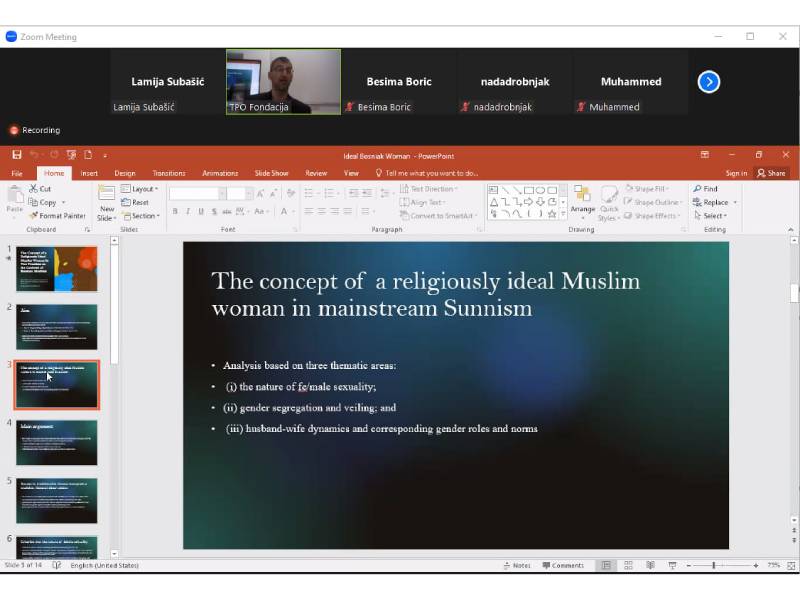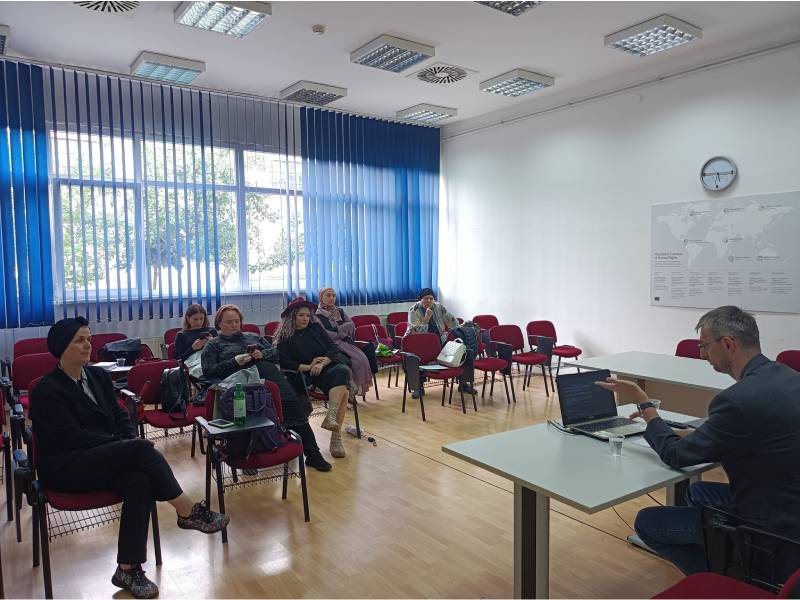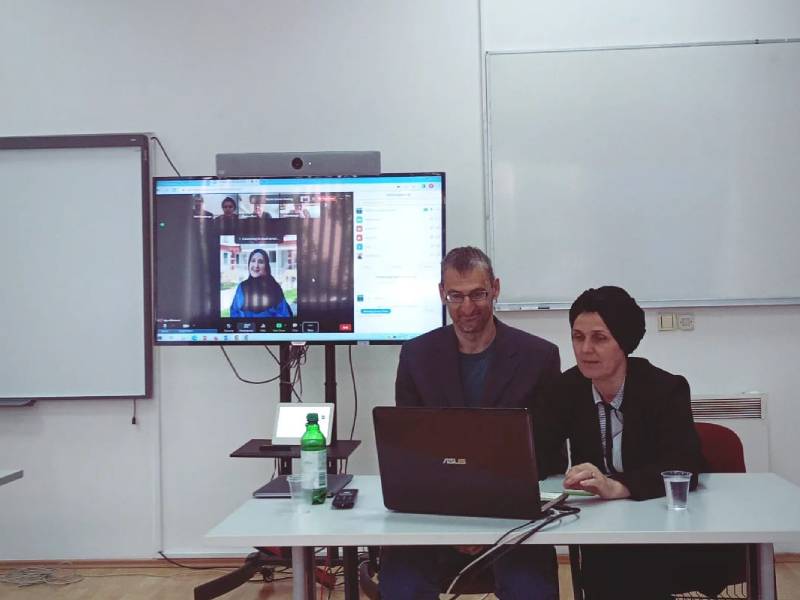As part of the project Introducing gender-conscious policies in higher education – UNIGEM, TPO Foundation and the University Gender Resource Center of the University of Sarajevo – UNIGeRC hosted prof. Ph.D. from Griffith University Australia.
In the Center for Interdisciplinary Studies “Prof. dr. Zdravko Grebo” of the University of Sarajevo and through the Zoom platform, a lecture titled “Female sexuality, gender segregation and veiling in Islam” was held – Đuderija Phd began his lecture by presenting the ideal Muslim woman through two works: Baljić, H. (2012) Bosnian Customs in the Light of the Sunnah (El-Kelimeh, Novi Pazar) and Hangi, A. (1907) Life and Customs of Muslims in Bosnia and Herzegovina (Sarajevo, Kajon).
The concept of the religiously ideal Bosnian Muslim woman in the two selected sources strongly reflects the ideal presented in mainstream Sunnism, which is based on the beliefs that:
1. women embody aggressive socio-morally corrupt sexuality,
2. adherence to strict segregation and concealment is vital and
3. that husbands have a locus of authority and control over their wives and children.
Analyzing Hangi (2010, 281) Đuderija PhD notes that it is the custom of Bosniak women to socialize and talk to each other in completely gender-segregated spaces. Hangi’s depiction of home design – separate rooms for men (ahar) and women (harem) also supports the segregation of women and men.
Women are also discouraged from going to the mosque (2012, 40) or attending the funerals of their relatives, even their own husbands (2012, 368) – as this could cause fitnah. Furthermore, young married women with small children are not allowed to go outside at all after sunset.
Đuderija PhD concluded that Islamic norms are very traditional and that some ontological beliefs emphasize that men are primary and women are secondary. Female sexuality is often seen as something deviant, diabolical, and masculinity and male sexuality are associated with knowledge, logic and religious knowledge. Traditional Islam linked obedience to God with obedience to one’s husband. It is important to approach different religious interpretations critically. Most of the interpretations were created from male perspectives, and precisely because of this there is gender discrimination that puts women in an unenviable position.
Lecture by prof. Ph.D. was based on the article: https://brill.com/view/journals/haww/aop/article-10.1163-15692086-12341395/article-10.1163-15692086-12341395.xml



Listen to the lecture in its entirety here.





















